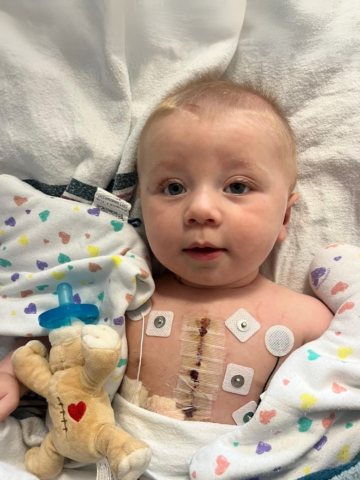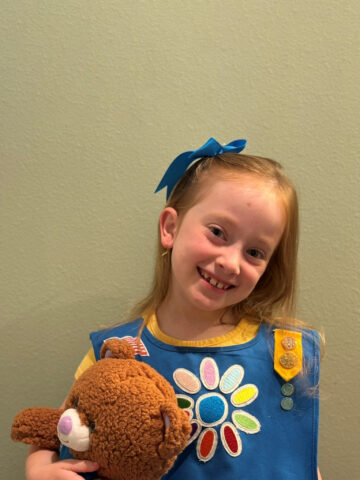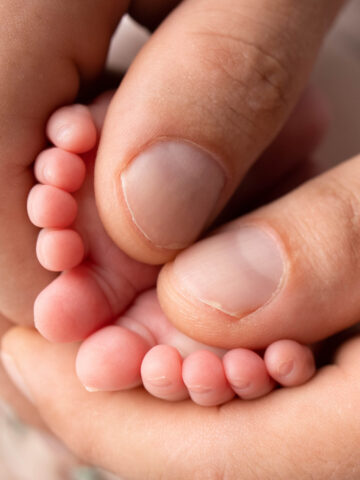Grooming a newborn can be a nerve-wracking experience, especially for first-time parents. From caring for the umbilical cord to trimming tiny nails, parents have a lot to learn when it comes to keeping their little ones “baby fresh.” Liz Drake, a clinical nurse specialist in the neonatal intensive care unit at CHOC Children’s at Mission Hospital, offers these simple tips to help parents master the basics:
1. Bathe your baby no more than three times a week. More than that can dry out your infant’s skin.
2. Give your baby sponge baths until the umbilical cord stump falls off, which can take up to three weeks. Gather all of your supplies—washcloths, basin of water, mild soap and towel—ahead of time, before placing your infant on a flat surface in a warm place. Keep your hand on your baby at all times and keep your baby wrapped in a towel. Expose only the parts of the body you’re washing. Gently clean the eyes first. Using only a damp cloth, work from the inside to the outside corners. Use separate ends of the wash cloth for each eye. Next, wipe your baby’s face, followed by the head. When it comes to cleaning the body, pay special attention to the skin behind the ears and around the neck, creases under the arms and legs, and, of course, the diaper area. Don’t forget to wash between the toes and fingers.
3. After the umbilical area is healed, you can try bathing your infant in a newborn tub or plastic basin. Lined with a towel or rubber mat, a kitchen or bathroom sink may also be an option. Don’t fill the tub with more than two to three inches of warm water. Always test the water before placing your baby in it.
4. To wash your newborn’s hair, cup your hand under warm water and gently pour it over your infant’s head. Gently rub in a circular motion a small amount of mild soap or baby shampoo. Use a small cup or your hand to rinse it off.
5. Don’t use clippers or scissors to trim your little one’s nails. Use a buffer or nail file to gently file them down.
6. Baby acne can be normal. Don’t pick or squeeze. If the acne worsens on the face and turns into red pustules, call the pediatrician.
To learn more about caring for your infant, child or teen, visit choc.org/health.





